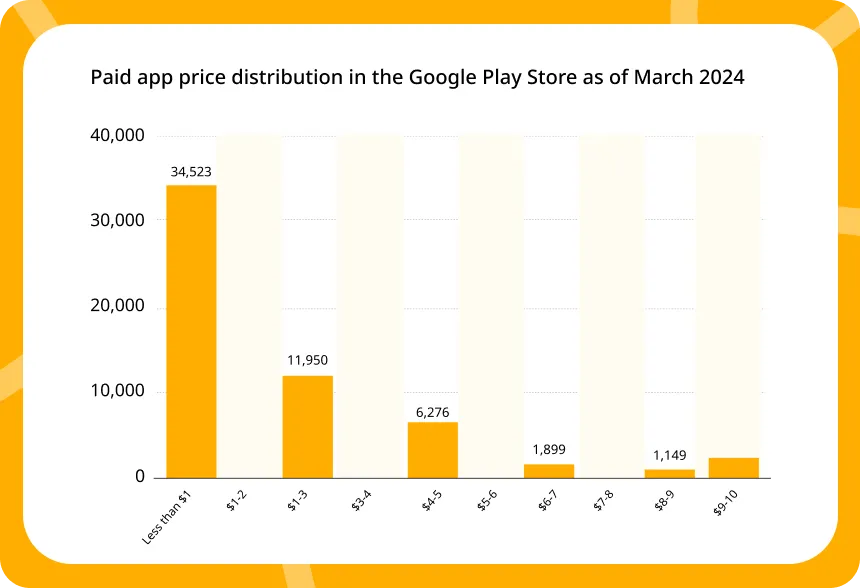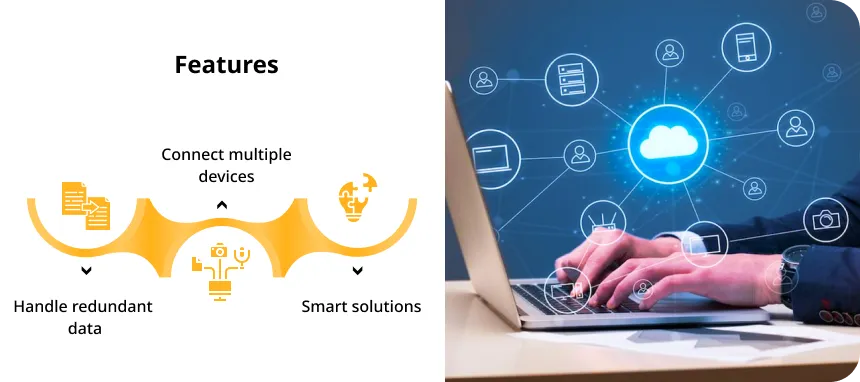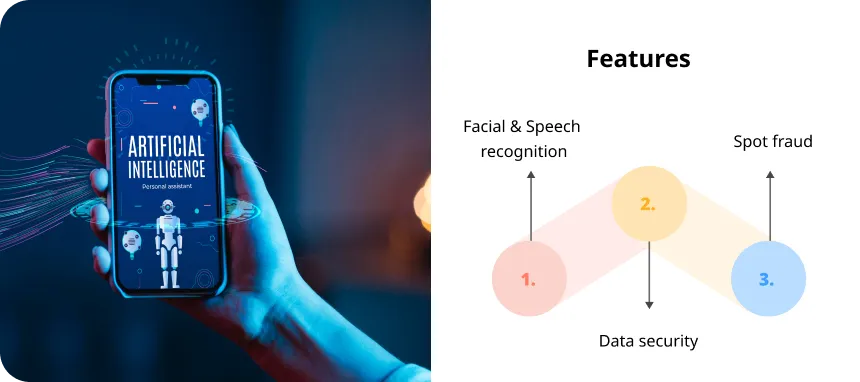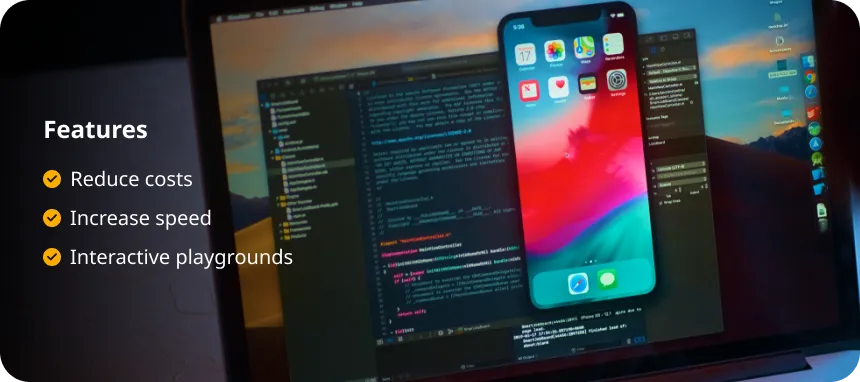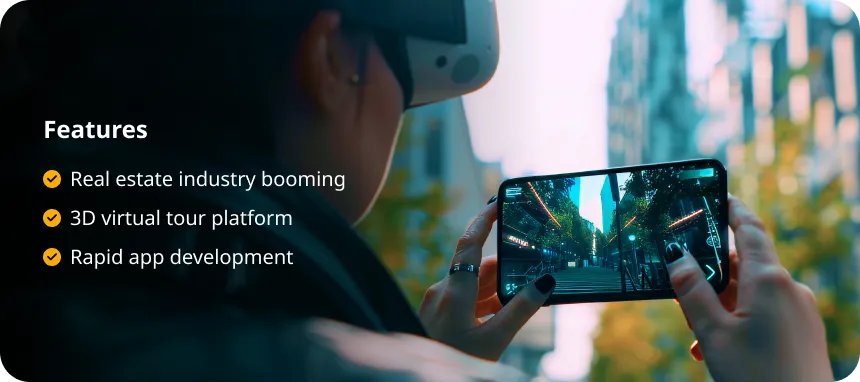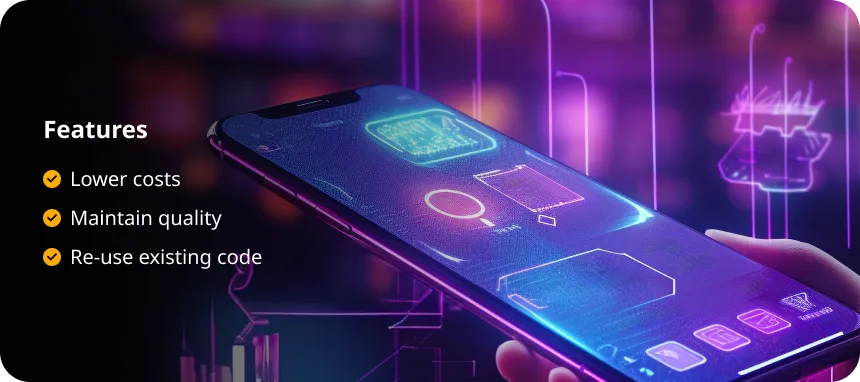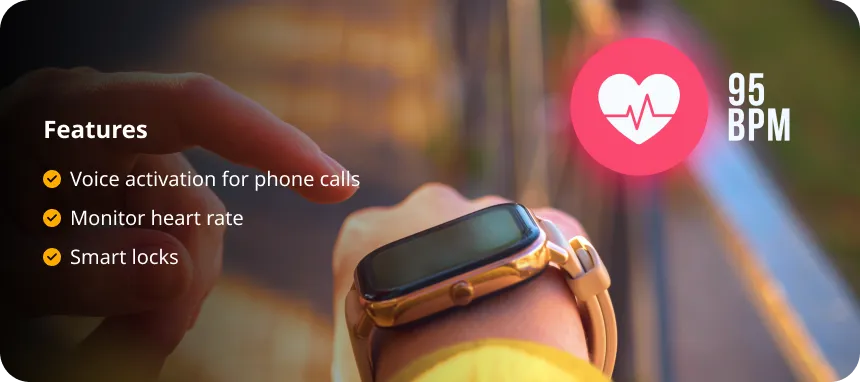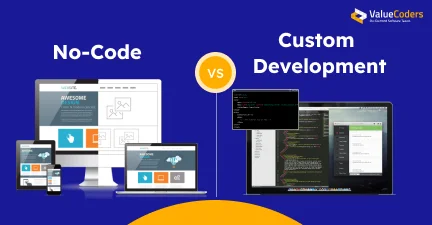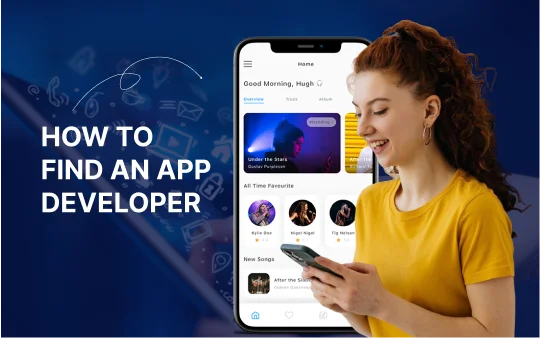Are you a startup, an enterprise, or a big company? Or a mobile app developer who wants to know about the future of mobile application development? If yes, this blog post will let you find information on the future of mobile app development trends discussed below.
Mobile app development technologies are changing quickly and are among the actively growing sectors in the global app market. Technologies/ trends indeed drive the future of mobile app development latest mobile app trends. This is all because of the latest mobile app development technology’s ability to boost your business.
If you are thinking of developing a mobile app or building an amazing app startup, the first question that comes into mind is th
Today, businesses have a lot to gain from the cost of application development. So, we have gathered a few stats for you:
- According to industry surveys in 2024, about 34,000 apps priced less than 1 U.S. dollar in the Google Play store.
- An application with a minimum set of features costs around $22,000, while the complex mobile app development cost starts at $72,000.
Ultimately, an effective app development strategy involves more than just technologies & trends.
Here are the top future of mobile apps’ trends to watch out for in the app development space:
1. Integration of Internet of Things and Cloud
One of the technologies that are a buzzword in today’s times is the IoT i.e., Internet of Things. There are many ways in which IoT and Cloud can transform mobile app development.
The global Internet of Things spending is projected to be $1.1 trillion by 2023-24, and the market is spread in many verticals, such as wearables, home appliances, smart cars, etc.
IoT and Cloud-enabled mobile applications are a key trend because of their capabilities to handle redundant data and connect multiple devices on a real-time basis.
In the future of mobile app development, apps need to be more advanced. They will need to speak to you in the same way devices built on IoT communicate. The cloud’s ability to connect many things with APIs will also be essential in the future of mobile application development.
Explore Our Customized App Development Services.
2. Artificial Intelligence in Future Mobile Apps
People use mobile devices for various purposes, like gaming, entertainment, etc. And expect a high level of features such as navigation, speech recognition, and natural language processing. Artificial Intelligence, in the future, will be used for all apps, and it has almost everything.
Worldwide revenue from the AI market is forecasted to grow at a CAGR of 37.3 % from 2023 to 2030.
The future of AI is predictive analysis and machine learning. These technologies will allow mobile app developers to deliver a more personalized experience in their applications, and apps will be able to perform functions such as analyzing user behavior and alerting them about any suspicious threats and breaches of information.
Also Read: How AI-driven Analytics is Shaping Mobile App Strategies in Real Estate
AI in mobile app development will help in achieving the goal of translation for conversations in real-time. The apps will be smarter and help you understand user behavior. The AI in mobile applications is changing the face of technology and will take mobile app development to a whole new level.
The rapid growth in the use of AI technology in the sphere of mobile app development technology has shown that this technology can improve overall user engagement on your mobile application.
Also Read: 11 Mobile App Development Trends To Look
3. Swift The Language of Future Mobile App Development
Swift programming language will play a more significant role in future mobile app development. That’s why it has become part of the future mobile trends that increase app creation speed while reducing overall cost.
Swift programming language is used to develop iOS applications and offers some ravishing features that have never been used by developers using other native languages. The best highlighting feature of Swift is its Interactive Playgrounds, which allow you to make changes to any coding without recompiling and fixing errors.
Some more highlighting features of Swift programming language for mobile app development are inferring types and automated memory management. The interoperability between the Objective-C programming language and Swift is also beneficial. So, developers don’t need to rewrite Objective-C applications for Apple iPhones and iPads.
Create Next-Generation Mobile Apps Tailored to Your Needs.
Moreover, the Swift language is undoubted of great significance in the mobile application development industry today and in the coming years.
Also Read: Top 10 Cross-Platform Frameworks For App Development
4. Role of AR and VR in the Future Mobile App Industry
The mobile app development industry is aware of Virtual Reality (VR) and Augmented Reality (AR). According to Statista, the AR/VR market is forecasted to reach US $ 38.6bn in 2024. These technologies will become very advanced and will be part of the great revolution in developing mobile apps for gaming and entertainment.
There are various show stoppers AR/VR games and applications like Pokemon Go, Sky Siege, iOnRoad, Google Cardboard, Samsung Gear VR, and many more in the global gaming and entertainment industry.
So, the VR and AR technologies in mobile app development continuously enhance the performance and features at a rapid speed. In the future of mobile apps, both technologies will surely improve the way developers build gaming apps, travel apps, and live streaming apps.
Also Read: Top 10 IoT Use Cases & Statistics To Consider In 2024
5. Cross-Platform Development for Future Apps
The future of mobile apps that will be developed on cross platforms are the apps that can be used on different mobile applications like Android, Windows, iOS, Blackberry, etc. The development of cross-platform mobile applications involves developing the original application on a native platform or in a particular environment that will then be sent to many different native platforms.
Today, developers need to create apps that can run on multiple mobile devices; that’s why they need cross-platforms to develop such modern apps.
Cross-platform development tools play a vital role in the mobile application development industry. In the future, they will play a more significant role in the process, help decrease costs, and increase application development speed.
Moreover, these development tools are React Native, NativeScript, Flutter, Ionic Framework, Xamarin, and more. All these tools are based on standard programming languages such as CSS, HTML, and JavaScript.
Also Read: Popular E-Learning App Development Trends Impacting Educational Sector In 2025
6) 5G Technology: Operating at 100x Speed
Imagine the technology that can transfer millions of data packets around the world within an eye blink.
Isn’t it fascinating!
According to IHSEconomics, 5G technology is going to witness a revenue opportunity of $12.3 trillion globally. The benefits that 5G technology can offer to your app are greater speed to increase mobile app user retention, fast data transfer, lower latency, and great user experience.
As you got a sneak peek of 5G’s benefits for your app, this technology will be the revolution for mobile devices. Mobile app development can take advantage of this technology in various industries like AR/VR, IoT, Smart Cities, Supply Chain, Transportation, and in each area that keeps the difference between 2 milliseconds and 20 milliseconds.
Also Read: The State of UI/UX Design in Mobile App Development: Trends
7) Blockchain: Concept Beyond Crypto
Decentralized, Transparent, and Immutable are three words that describe Blockchain well. It is the most trending technology that is changing the way mobile application development is.
According to a report from Nasscom in 2019, the projects built by Blockchain development companies cost over $20 billion. These stats clearly show the popularity and adoption of this revolutionary technology.
By harnessing the Blockchain with mobile app development, businesses can build highly secure applications that deliver great outcomes. Whether you want a health app, a retail app, or a fintech application, Blockchain can be integrated with each kind of app.
Partner with Us to Create Memorable App Journeys.
Also Read: Why Travel & Tourism Industry Needs To Have Mobile Apps?
8) Wearables: Bring A Range Of Functions
According to Statista, the revenue of the digital fitness device market is going to achieve the highest value of US $62.64 bn in the year 2028.
Whether it’s a Fitbit, a Galaxy Watch, or Snapchat spectacles, these IoT devices got a separate market base. Even though these devices are IoT-enabled gadgets, they got different use cases.
From telling the healthcare stats to providing vital physiological information of daily life, the integration of wearable gears plays an important role. Even though we have listed IoT, wearables have separate use cases and user bases.
The utilization of wearables delivers effectiveness in day-to-day tasks. And the integration of these devices with mobile app development can bring convenience to your customer’s life through your app.
Unlock Efficiency & Collaboration with Our Tailored Solutions.
Conclusion
The way app development is flourishing is similar to the idea that traditional technologies have in the past. You can learn from past references to predict the future of mobile app development or what’s yet to come.
Now, we can say that the future of app development is extremely looking bright and vastly different from contemporary technologies. This will make developers and businesses do well in the future by providing quality and unique solutions to the users.
Businesses can take advantage of these trending technologies by implementing them with mobile app development. Billions of apps are available on the play store, app store, and many other platforms. To make your app stand-alone and unique, these technologies can be used.
To stand out in this competitive space, it is important to go for a trusted development partner who can utilize these emerging technologies with appropriate skills. co
ValueCoders is a top Indian application development company that offers extensive mobile application development services to global leaders. We deliver cutting-edge and customized mobility solutions for your unique business requirements.

